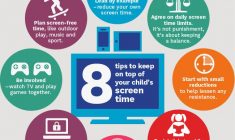Pastoral Care
Student Wellbeing and Digital Citizenship – Managing Time Online
As our students head into a long weekend and soon a three week holiday break, it is timely to consider how much time your son spends online and how you manage his screen time, in general. Screen time limits are about making sure your son enjoys lots of healthy, fun activities – both with and without screens. Limits mean looking at the time your son spends on screens and making sure it doesn’t get in the way of sleep and activities that are good for his development. These activities include things like physical play, reading, creative play like drawing, and social time with family and friends. This animated introduction to the issue of children spending too much time online, including the impact on sleep and school work and how parents can help children achieve a balance is worth watching. https://vimeo.com/110950040.
It is important to set clear rules about when and for how long your child can play games or use the internet — the Australian Physical Activity and Sedentary Behaviour Guidelines provide a useful benchmark. It may take time to strike a balance but a minor reduction each day or ‘15-minutes to switch-off’ warning can help the transition.
Guildelines for Healthy Growth and Development for Children and Young People – Brochure
Reducing your own screen time also sets a positive example. We need to make sure that the time we are spending looking at our screens is truly appropriate. In an article written by Sierra Filucci titled, ‘Screen-Time Limits for Parents?’ she states, ‘If parents are going to be smart about our smartphones, we do need to make a few rules for ourselves – Smartphone users tend to underestimate the time they spend staring at their phones instead of their kids. It might feel like 20 seconds, but really three minutes have passed.’ Too often you see a child have an accident when someone was looking down at their screen. If we want our children to be great digital citizens, then we need to model this behaviour. Sierra Filucci offers some great advice on how to get that balance right for yourself. She encourages: · No devices during mealtimes. If a topic comes up that you would normally google, add it to a list to look up later.
- Leave the game-playing (Words With Friends!) until after the kids are in bed.
- No texting or talking on the phone while driving.
- Put away the phone if the kids are swimming unattended or doing anything else potentially dangerous.
- Designate “no-tech zones” in your home — and respect them!
The following sites provide a large amount of useful research and suggestions for managing your son’s screen time.
http://raisingchildren.net.au/articles/screen_time.html
https://www.esafety.gov.au/parents/big-issues/time-online.
Set clear rules about when and for how long your child can play games or use the internet—the Australian Physical Activity and Sedentary Behaviour Guidelines provide a useful benchmark. It may take time to strike a balance but a minor reduction each day or ‘15-minutes to switch-off’ warning can help the transition. Reducing your own screen time also sets a positive example.
Pascal Czerwenka – Deputy Head of Lindfield







